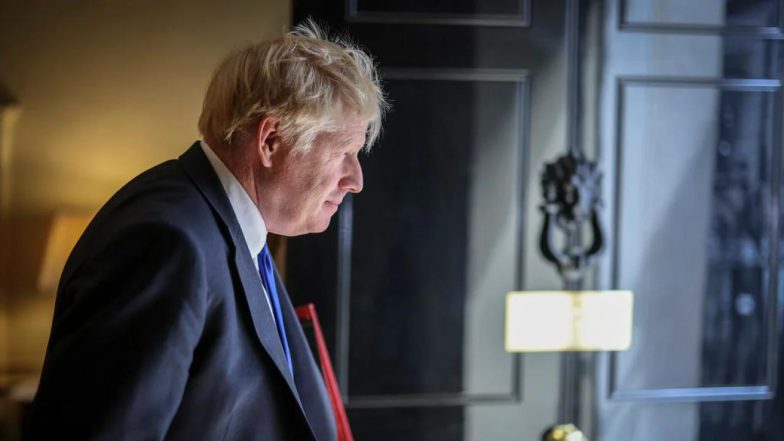News
July 12, 2022 – 9:30 am (ET)
PBS NewsHour – July 7, 2022 (08:42)
Prime Minister Boris Johnson announced his resignation Thursday after droves of top government officials quit over the latest scandal to engulf him, marking an end to three tumultuous years in which he tried to bluster his way through one ethical lapse after another.
Months of defiance ended almost with a shrug as Johnson stood outside No. 10 Downing St. and conceded that his party wanted him gone.
“Them’s the breaks,” he said.
The brash, 58-year-old politician who took Britain out of the European Union and steered it through COVID-19 and the war in Ukraine was brought down by one scandal too many — this one involving his appointment of a politician who had been accused of sexual misconduct.
American basketball star Brittney Griner pleaded guilty Thursday to drug possession charges on the second day of her trial in a Russian court in a case that could see her sentenced to up to 10 years in prison.
The abrupt guilty plea by the Phoenix Mercury center and two-time Olympic gold medalist came amid a growing chorus of calls for Washington to do more to secure her freedom nearly five months after her arrest in February amid rising tensions between the U.S. and Russia over Ukraine.
A senior Russian diplomat said earlier that no action could be taken by Moscow on Griner’s case until the trial was over, and her guilty plea could be an effort by her and her advisers to expedite the court proceedings.
Griner, 31, was detained at Moscow’s Sheremetyevo Airport while returning to play basketball in Russia, and police said they found vape canisters containing cannabis oil in her luggage.
PBS NewsHour – July 7, 2022 (05:18)
Does Boris Johnson’s downfall mark the end of an era? He and former President Donald Trump dominated the world stage over the past few years, pushing forward explosive policies that broke sharply with their nation’s long-held core positions. For Johnson, his biggest legacy as prime minister will be his embrace of nationalism by enacting Brexit and breaking the United Kingdom away from the European Union. For Trump, it will be his privileging of an America First agenda and weakening ties with key allies while pushing domestic policy sharply to the right on issues such as immigration and climate change. And, of course, Trump’s campaign to overturn the 2020 presidential election opened a new and dangerous door for anti-democratic forces within the US.
Beyond the letter of policy, both men shared a tumultuous approach toward governing. They appeared to move from one crisis to the next without a larger game plan, deploying chaos as a tool.
Both were media-centered politicians who were willing to break with traditional norms. They played fast and loose with the facts, depending on disinformation as a political weapon. The cronyism and willingness to use power for self-interest revealed men who were willing to exploit vulnerabilities in their political systems to their maximum advantage.
So, what comes next? Will the conservative populism they championed outlast their tenures? Or do their falls from power mark the beginning of a new era in conservative politics?
Our moment bears some resemblance to the end of the 1980s, when the two most influential figures of conservatism — US President Ronald Reagan and British Prime Minister Margaret Thatcher — ended their tenures. For Reagan, that moment took place after the end of his second term in 1989, while Thatcher stepped down in 1990. Both figures had been extraordinarily influential, pushing a brand of conservatism that privileged the virtues of the market, blasted the role of government, attacked organized labor, and insisted on a hawkish approach toward foreign policy. Together, Reagan and Thatcher remade international politics by bringing legitimacy to a vision of politics that would have been deemed too radical just a few decades before they took on their leadership positions.
July 7, 2022 – 6:00 pm to 7:00 pm (ET)

